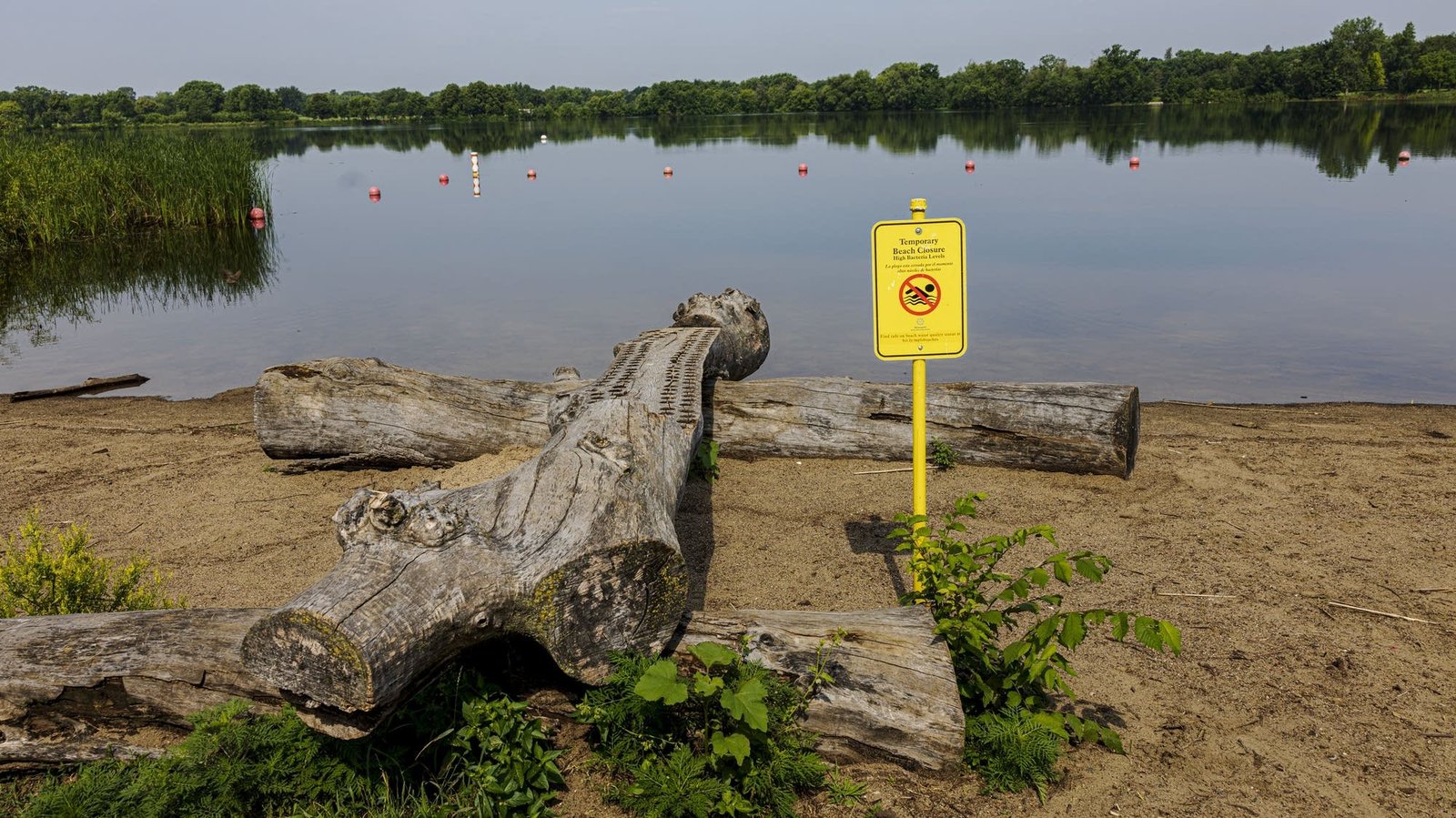As the weather gets hotter and more humid, it’s tempting to jump into the nearest body of water to cool off. But several Minnesota beaches have seen a rise in bacteria levels that can make people or animals sick.
On Wednesday, the Minneapolis Parks and Recreation Board issued hazardous algae advisories for both Lake Nokomis beaches: the Main Beach and the 50th Street Beach. Hot weather, sunlight and high water temperatures are ideal conditions for blue-green algae to bloom and, in turn, release toxic bacteria.
Several other beaches around the Twin Cities have closed or are under advisory for high levels of bacteria, including E. coli.
As the weather shifts and conditions change, MPR News will update the list below with new closures and advisories.
Know of any lake closures in your area that we missed? Let us know at tell@mpr.org.
Beach closures
Closed beaches:
-
East Medicine Lake Park, Plymouth — unacceptable test results
-
Excelsior Playground Beach, Excelsior — unacceptable test results
-
Lake Hiawatha Beach, Minneapolis — bacteria exceedance, E. coli levels
-
Round Lake Beach, Eden Prairie – unacceptable test results
-
Fort Snelling Beach, Fort Snelling – unacceptable test results
-
Surfside Park Beach, Mound – unacceptable test results
-
Nelson Lakeside Park, Long Lake – other
Under advisory:
-
Lake Nokomis Main Beach, Minneapolis – algae blooms
-
Lake Nokomis 50th Street Beach, Minneapolis – algae blooms
How to stay safe in the water
According to the Minnesota Pollution Control Agency, there are a few ways to spot blue-green algae blooms.
People and pets should avoid water that:
-
Is discolored or streaky
-
Is a thick, pale green, like spilled paint or pea soup
-
Has scum, globs or algal mats floating in it
-
Has small green dots floating in it
Pet owners should keep animals from swimming in water that shows any of the above signs and from licking any algae off their fur.
If fishing, be sure to rinse any catches in fresh, clean water and to throw away the guts before cooking and eating.
And, as a rule of thumb, do not swallow lake water or swim in areas where you cannot see your feet in knee-deep water.




